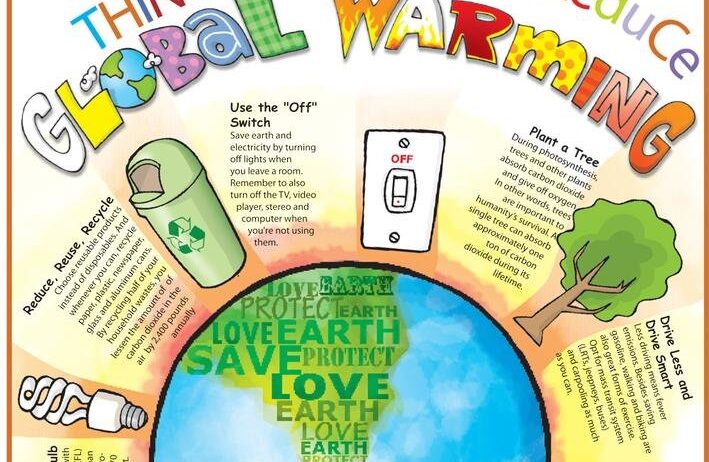Global warming is an insidious specter that looms over our collective future, driven primarily by human activities that emit greenhouse gases into the atmosphere. However, despite the daunting nature of climate change, the power to effectuate tangible solutions lies within our communities. Every local action can contribute significantly to the global effort against climate change. This discourse elucidates various initiatives and alterations we can implement within our immediate spheres to mitigate the omnipresent threat of global warming.
At the heart of any effective local initiative is the recognition of the community’s unique characteristics. Each locale has its own environmental challenges and resources. Hence, the first action is to conduct a thorough assessment of the local environment—understanding the predominant sources of emissions, resources available, and the demographics of the community. Engaging local stakeholders ensures that the strategies devised resonate with the needs and capabilities of the populace. This groundwork is essential for formulating an effective action plan.
One of the most impactful ways to engage the community is by promoting sustainable transportation. Cars are a significant source of carbon emissions. Encouraging residents to embrace alternative commuting options can lead to substantial reductions in greenhouse gas emissions. Local governments can facilitate this shift by establishing bike lanes, promoting carpooling initiatives, and enhancing public transportation systems. Community-led initiatives such as “bike to work” days or walking school buses not only contribute to reduced emissions but also foster a sense of camaraderie among participants. Such initiatives might be both enjoyable and achievable, nurturing a culture of sustainability.
Subsequently, consider the food systems within your locality. Agriculture is another major contributor to greenhouse gas emissions. However, local food networks offer a pathway to sustainability. Promoting community gardens, farmers’ markets, and educational workshops pivoted on organic farming can create a nexus of sustainable practices. By sourcing food locally, communities can reduce the carbon footprint associated with long-distance food transportation while simultaneously supporting local economies. Furthermore, educational initiatives can address food waste, encouraging practices like composting, which diverts organic matter from landfills and enriches the soil.
Energy consumption is another crucial battleground in the fight against global warming. Transitioning to renewable energy sources reduces dependence on fossil fuels. Homeowners can be encouraged to embrace solar panels, wind turbines, and other forms of clean energy technologies. Communities can benefit from collective purchasing agreements or incentive programs that facilitate the adoption of renewable energy infrastructure. Moreover, local governments could champion energy efficiency retrofits for public buildings, showcasing their commitment to reducing carbon footprints whilst serving as communal beacons of sustainable practice.
Water conservation is often an overlooked aspect of sustainability but is fundamentally tied to climate action. Communities can implement various programs to promote water-saving behaviors. Installing rain barrels, promoting xeriscaping, and raising awareness about the significance of water conservation can yield considerable environmental benefits. Local regulations that favor drought-resistant plants can not only curb water use but also enhance local biodiversity, creating habitats for native species. The synergy between conserving water and nurturing a biologically diverse environment augments the resilience of communities against climate-induced challenges.
Education and awareness are indispensable components of any local initiative aimed at combating climate change. Workshops, community forums, and inclusive discussions can foster a deeper understanding of the causes and ramifications of global warming. Schools can play a pivotal role by integrating environmental education into their curricula, sparking the curiosity of young minds while empowering them to be stewards of our planet. Additionally, community events such as clean-up drives, tree-planting ceremonies, or environmental festivals can foster a sense of agency among residents. These events serve not only to enhance environmental practices but also to build community bonds, uniting individuals toward a common purpose.
Financial mechanisms also hold the potential to facilitate local climate initiatives. Establishing community investment funds can direct capital toward green projects that improve local infrastructure. Sponsoring energy-efficient upgrades for homes, supporting startups focused on sustainable technologies, or even funding local conservation projects can empower communities to take ownership of their environmental impact. Economic incentives help ensure participation and encourage innovative solutions to emerging challenges.
Moreover, it is crucial to forge partnerships with local businesses. Collaborative efforts can yield substantial benefits. Businesses can implement sustainable practices, reduce waste, and promote green products while enhancing their community reputation. For example, loyalty programs that reward customers for sustainable choices could drive consumer behavior towards more environmentally friendly options. Such symbiotic relationships catalyze a larger cultural shift towards sustainability, as businesses champion ecological responsibility while also observing enhanced consumer loyalty.
Finally, active engagement in policymaking is necessary to amplify local actions on a larger scale. Encouraging community members to participate in local government meetings creates a platform for voices advocating for sustainable practices and climate action. Advocacy for comprehensive environmental policies, such as the adoption of climate action plans or carbon neutrality commitments, underscores a community’s dedication to fighting climate change. By uniting to exert pressure on local officials, communities can catalyze systemic changes that align governance with environmental sustainability.
Through a myriad of localized actions, communities wield formidable capacities to combat global warming. While the fight against climate change may seem like an insurmountable battle, through collaborative efforts, a cultural shift toward sustainability can emerge. Each initiative—whether promoting green transportation, local foods, or renewable energy—augments the collective impact on mitigating climate change. Ultimately, nurturing a culture of environmental stewardship within local contexts is vital for fostering resilience against the perils of global warming. The seeds of change lie within our communities; all that is required is the determination to cultivate them.








